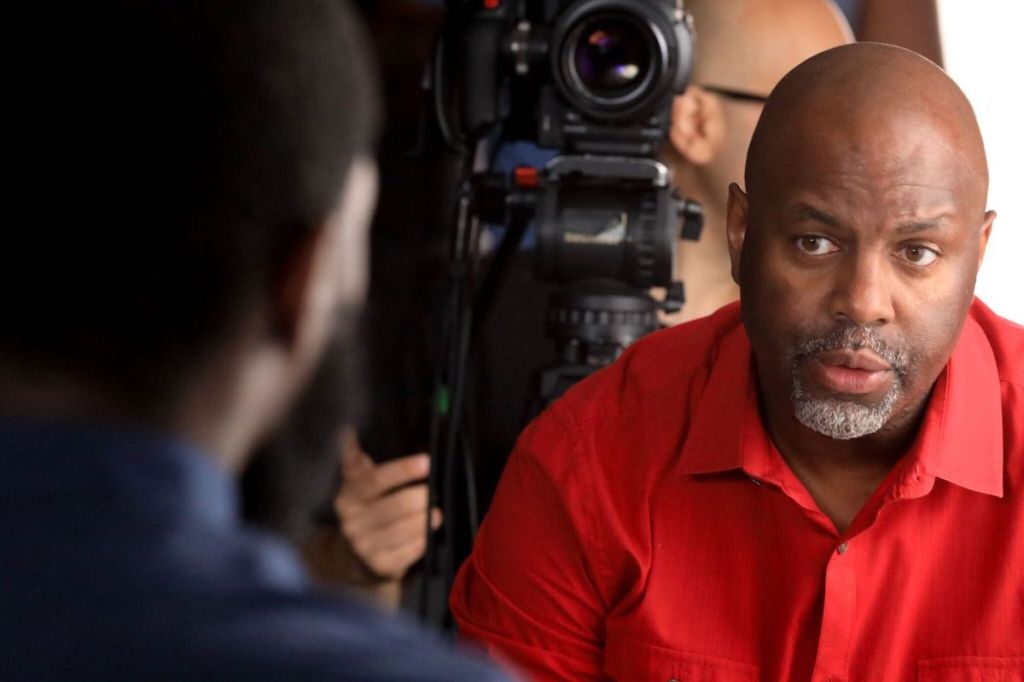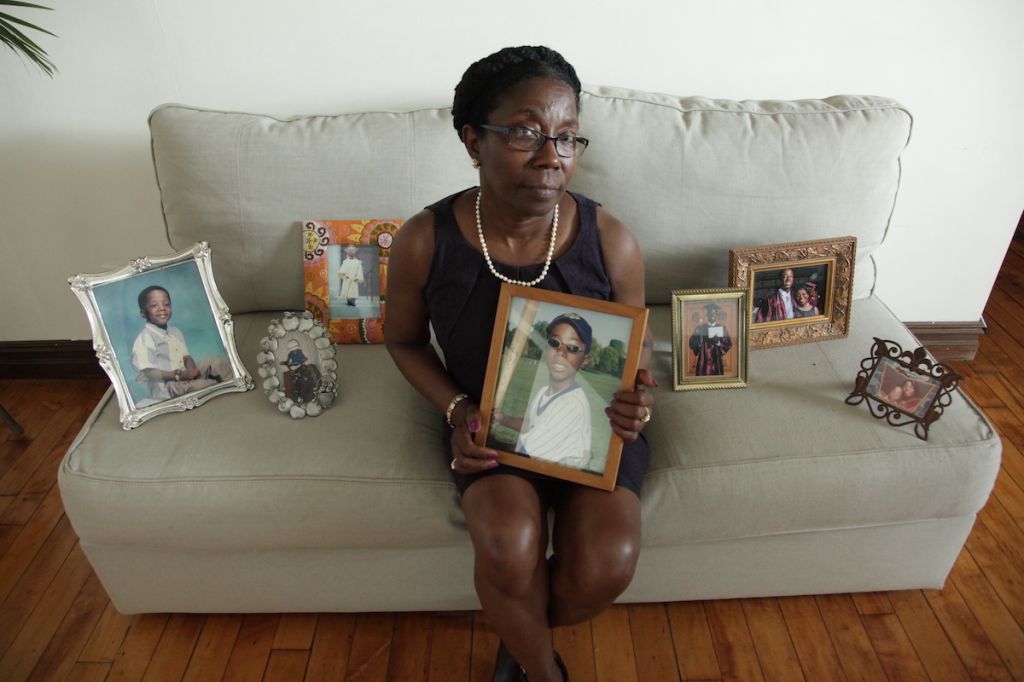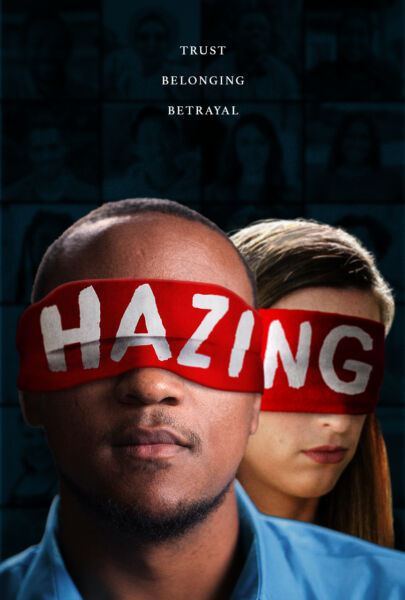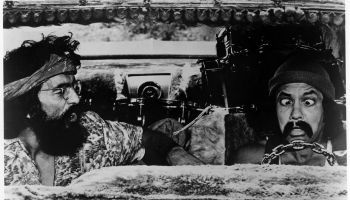Did you know that this week was National Hazing Prevention Week?

Source: Marcell Pickens / Courtesy PBS
We wanted to bring attention to the cause, particularly with school being back in session and the end of August unofficially ushering in “hazing season.” GlobalGrind’s Sr. Content Director Janeé Bolden spoke with ‘Soul Food Junkies’ filmmaker Byron Hurt about his latest documentary ‘Hazing,’ which premiered on PBS last week and is currently available on the PBS app and website.
Check out our Q&A with Byron Hurt below:
What prompted you to make a film about hazing and why do you think you were the right man for the job?
My first inkling of making a film about hazing came when I was on an airplane and I just happened to be reading this big story about a young man named George Desdunes, who was a college student at Cornell University who died from alcohol poisoning while doing a hazing for his fraternity Sigma Alpha Epsilon. I read that story and I just thought it was so tragic that this young Black man died from this really senseless ritual.

Source: Laylah Amatullah Barayn / Courtesy PBS
The fact that he was an only child and his mother was just so devastated by his loss and was just so unaware of this culture that existed that she never warned her son about it because she didn’t really know anything about it. Because I am a fraternity member [Omega Psi Phi] and I’m familiar with hazing culture I thought, ‘this is horrible, nobody should send their child off to college to die.’ I tried to put myself in her shoes and I just couldn’t imagine. That alone was not the story that pushed me over the edge. The story that pushed me over the edge was Robert Champion. Robert Champion was a band member at Florida A&M University and I saw that story hit the news cycle and I again was blown away by it, devastated by it… I really felt that I was the filmmaker to make a story that addressed hazing culture because of the way I’m located within the Greek world. I’m a member of a fraternity. I feel I have some real insights into the process. I also deconstruct masculinity and violent masculinity in ways. Usually we read stories about hazing or watch a news story about hazing it’s usually a boy or man who dies from hazing and there is some kind of hyper-masculine component in the hazing ritual that gets buried.
We were astonished by the statistic in the film that White fraternities account for 83% of hazing deaths. Were you surprised?
I wasn’t surprised by it once I learned the number because there are so many white greek letter organizations and so few Black greek letter organizations. One of the things that have been a major misconception is that because I’m black and I’m a member of a BGLO is that’s what the film would be about. That’s not the kind of film I wanted to make.

Source: Kevin Chung / Courtesy PBS
We were also struck by how little empathy people seem to have for victims of ‘Hazing.’ There is a quote in the film about how torture seems an appropriate price for people to pay when they are begging to be part of something.
As I was making the film I had some early screenings and I would share clips of certain stories to see how people would respond. What I saw over and over again was people not caring. Literally blaming the victim saying, ‘What did they expect? They had a choice. They could have walked away from the organization.’ It’s the kind of victim blaming that we see in our society in general that happens with hazing as well.
Your documentary goes beyond revealing stories about fraternity and sorority hazing. Did you always plan to take it there or was that a result of your research?
I really wanted to expand people’s ideas of the kind of spaces where hazing happens. I really wanted to broaden it. In fact, we had additional stories we weren’t able to fit. We had military stories, we had sports stories, and there was a story of a nurse who was hazed pretty dramatically when she was becoming a nurse. We just ran out of time. We had to make really difficult choices about which stories to tell and why. Just to make sure it didn’t feel redundant. The goal was always to make sure that it existed outside of greek life and Black greek letter organizations and sports. There’s a huge story circulating now about a high school football team outside of Pennsylvania and I think two others are being investigated. Greek life and sports culture are the two biggest areas where hazing exists but it also exists outside of that.
The film sheds light on how hazing became more violent for Black greek letter organizations following the 60’s and 70’s. Can you tell us more about that?
After the G.I. Bill was passed and members of the military came home and were attending college, they imported some of their initiation rituals into the process.
We learned so much from watching ‘Hazing’ and really hope other people check out the film and spread the word so that we can bring an end to these senseless deaths!
















